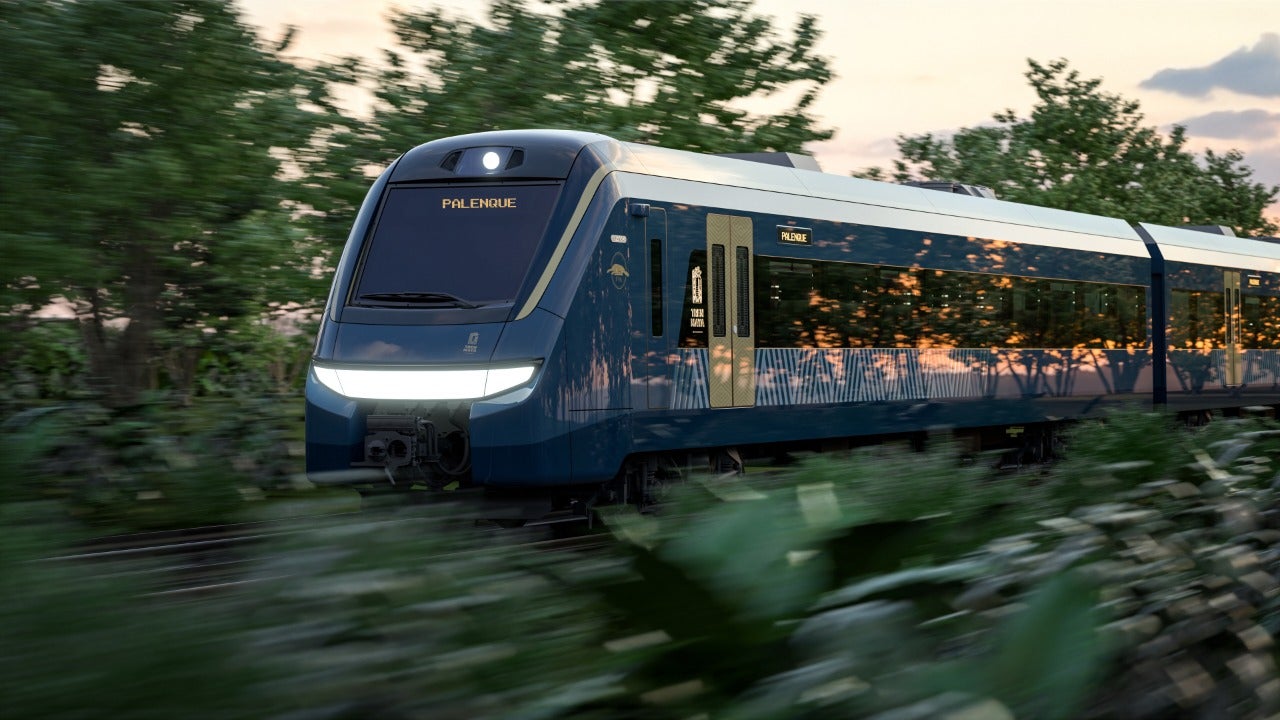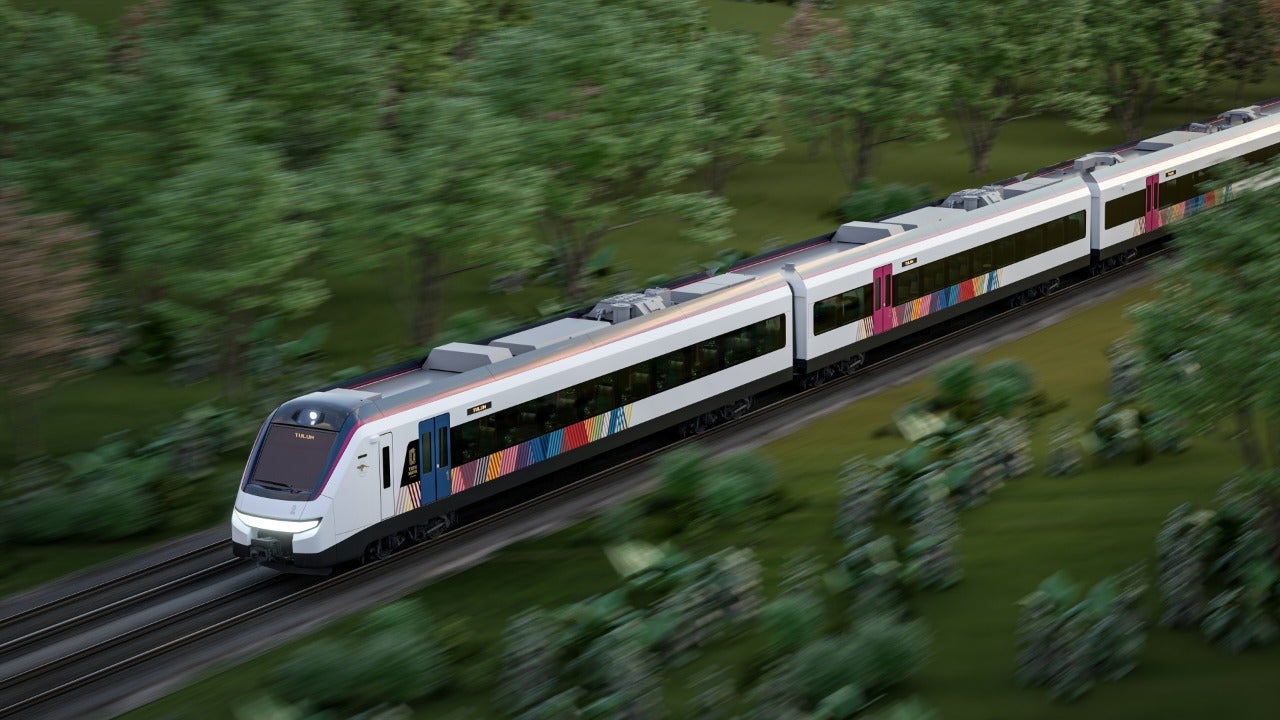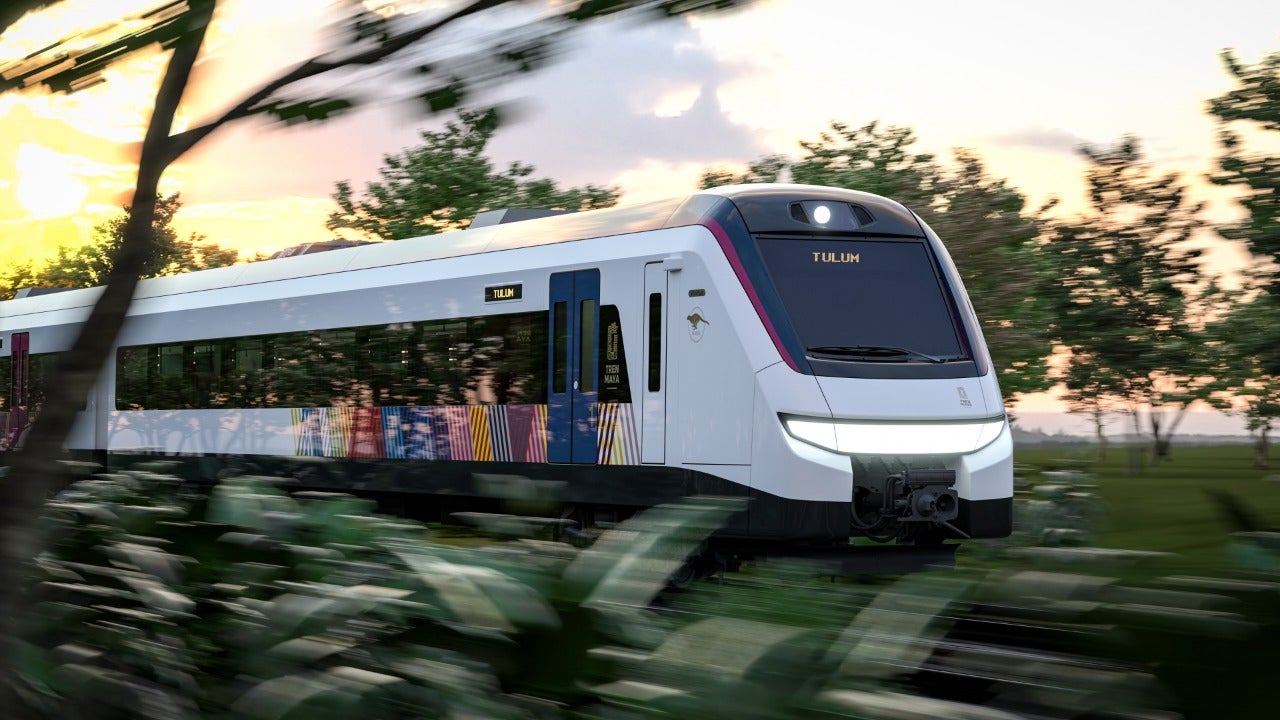The Tren Maya is a 1,554km railway project that will interconnect the major cities and tourist regions of the Yucatán Peninsula in Mexico.
Also known as the Mayan Train Project, it will significantly improve transportation and economic growth in the country.
The railway project, which is led by Mexico’s National Fund for the Promotion of Tourism (Fonatur), will include seven separate sections.
Construction works started in 2020, with the first section of the intercity railway project scheduled to commence operations in December 2023. The project is expected to generate 4,500 direct and 7,500 indirect jobs.
Background of Tren Maya railway project
The Tren Maya project was launched by the Mexican Government as part of the National Development Plan for 2019-2024.
It is a significant tourism and transportation infrastructure initiative dedicated to the south-south-east region of Mexico.
Fonatur announced the winning bid for the rolling stock and related equipment supply contract in May 2021.
The project aims to significantly cut passenger and freight transportation costs in the region while supporting industrial development.
Tren Maya railway project details
The 1,554km Tren Maya railway line will pass through 29 stations in the five principal south-east states of Chiapas, Tabasco, Campeche, Yucatan, and Quintana Roo.
Mayan Train is a priority project of the government for passenger and freight transportation, which is being developed in two phases.
The first phase of the project involving sections one to four will connect the stations from Palenque to Cancun while the second phase involving the remaining three sections will cover the stations from Cancun to Escarcega.
The sections of the first phase extend across a total length of 892km while the phase two sections will be 662km in length.
Rolling stock of Mayan Train Project
The new X’trapolis train from Alstom for the Tren Maya will build on the manufacturing capability of the company to produce an upgraded train model that will be competitive and reliable in the long term. The model has a sturdy design with a modular interior, and a light bodyshell.
The train with a maximum speed of 176km/h will also be incorporated with the components and expertise of the previous Bombardier, notably the Flexx Eco lightweight bogie.
The Xiinbal, Janal, and P’atal trains are designed exclusively for Mexico. The design is inspired by the Mayan culture and incorporates the lines, speed, and beauty of the jaguar, which is one of the largest felines in the world.
All three configurations will provide enough legroom at the seats and space to facilitate better movement inside the passenger car. Furthermore, each train will feature sufficient luggage storage space, thanks to overhead racks adapted from Alstom’s intercity variant Coradia and vertical racks in each car. The fully flat floor design of the train will allow passengers with restricted mobility to move freely.
The X’trapolis will feature high-performance heating, ventilation and air-conditioning (HVAC), as well as wide windows offering scenic views of the Maya region.
Orders and deliveries of the Mayan Train project
A consortium comprising Alstom Transport Mexico, Bombardier Transportation México, Gami Ingeniera e Instalaciones, and Construcciones Urales Procesos Industriales received an initial order worth €1.3bn ($1.5bn) to supply rolling stock and railway systems for the Mayan Train project.
The order contains 42 passenger units that will be delivered in three different configurations, including 31 regular service trains (Xiinbal), three long-distance trains (P’atal), and eight restaurant specialities (Janal). The first units are expected to be delivered in the second half of 2023 to begin system testing.
The rolling stock will be manufactured at Alstom’s Ciudad Sahagún, Hidalgo plant in Mexico.
The contract also includes the design, supply, and installation of the on-board European Train Control System (ETCS) technology and the delivery of more than 1,500km of track-side equipment such as ETCS, interlocking, traffic control and telecom systems. The consortium will also establish repair workshops and garages and provide after-sales service for the equipment.
Contractors involved
Fonatur awarded the €713m ($865m) contract for the construction of 60.3km of electrified double rail tracks for section five of the Mayan Train line between Playa del Carmen and Tulum to Spanish infrastructure company Acciona and Mexican conglomerate Grupo México in February 2021.
Consulting engineering group Typsa was contracted to offer technical support, as well as project and construction management services for sections one to five.
The team of Renfe, DB Engineering & Consulting, Ineco, and Inecomex was selected to perform shadow operator activities for the Tren Maya Project.
Global consulting and construction engineering firm Egis, in a consortium with two local engineering companies, Triada and Transconsult, won the works supervision contract for section four of the Tren Maya project in November 2020.






